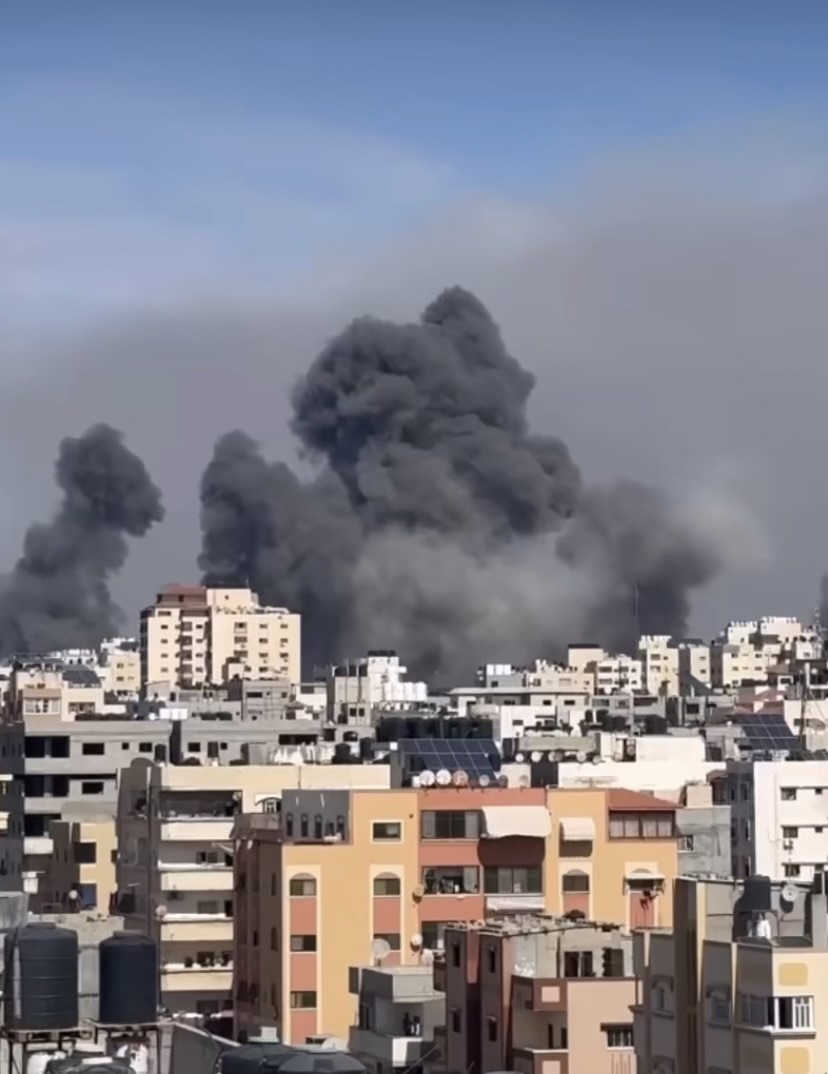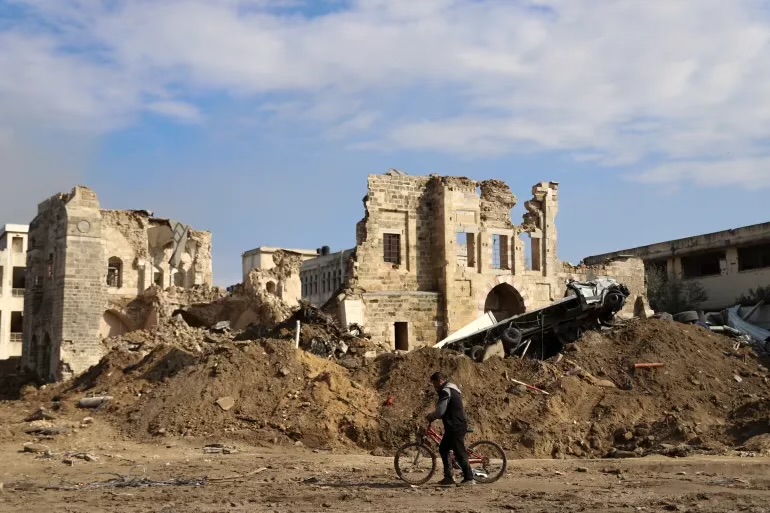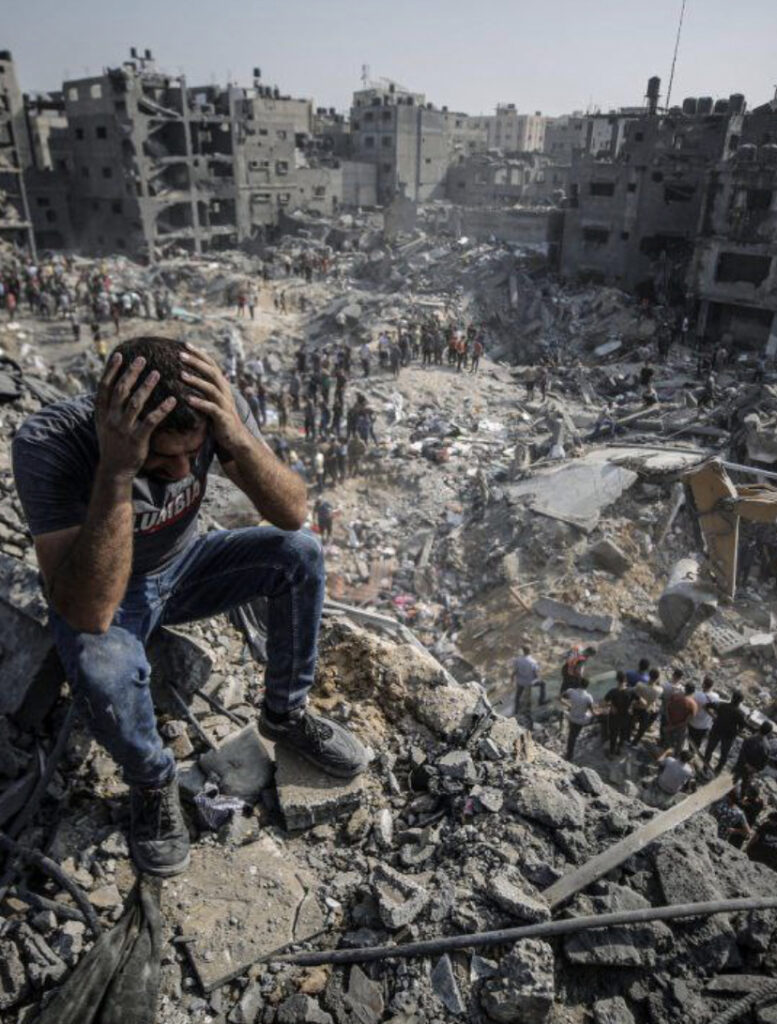The Palestinian militant group Hamas launched “Operation Al-Aqsa Flood” on Saturday morning, infiltrating Israeli territory by land, air, and sea and sparking the largest escalation of the conflict in decades. Hamas launched thousands of rockets at various targets throughout Israel and Hamas forces overtook Israeli settlements and checkpoints inside and outside of Gaza, capturing Israeli tanks, soldiers, and even senior Israeli military officials. Israel has reported that at least 1,100 Israeli soldiers and settlers were killed and 2,740 more were injured.
Israeli Prime Minister Benjamin Netanyahu vowed “mighty vengeance,” which has taken place in the form of bombing and airstrikes against the population in the Gaza Strip, killing at least 770, including more than 91 children, and injuring 4,000, according to the Palestinian Health Ministry. Israeli warplanes and missiles struck hospitals, schools, mosques, and residential buildings in Gaza, including the Palestine Tower, which holds dozens of apartments and media offices. Additionally, Israel cut off water, food, and electricity to the blockaded territory and denied UN requests for humanitarian access. UN Rights Chief Volker Turk condemned both Israel’s siege of Gaza and Hamas’ taking of hostages. Turk pointed out that Israel’s actions of cutting off supplies and indiscriminately bombarding the enclave are a violation of international law, and may amount to collective punishment, which is defined as a war crime.
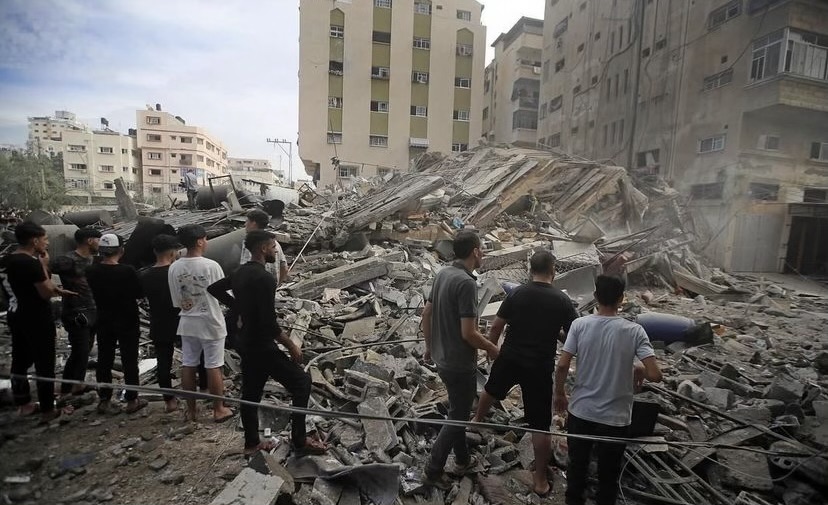
Analysts suggest that Hamas’ large-scale operation has most likely been planned for months or years, leading many to wonder how Israel’s famed intelligence agency, Mossad, had failed to catch wind of the planned offensive. Hamas militants crossed the border into Israeli territory and infiltrated Israeli towns within hours of the beginning of the operation, even reportedly capturing military bases.
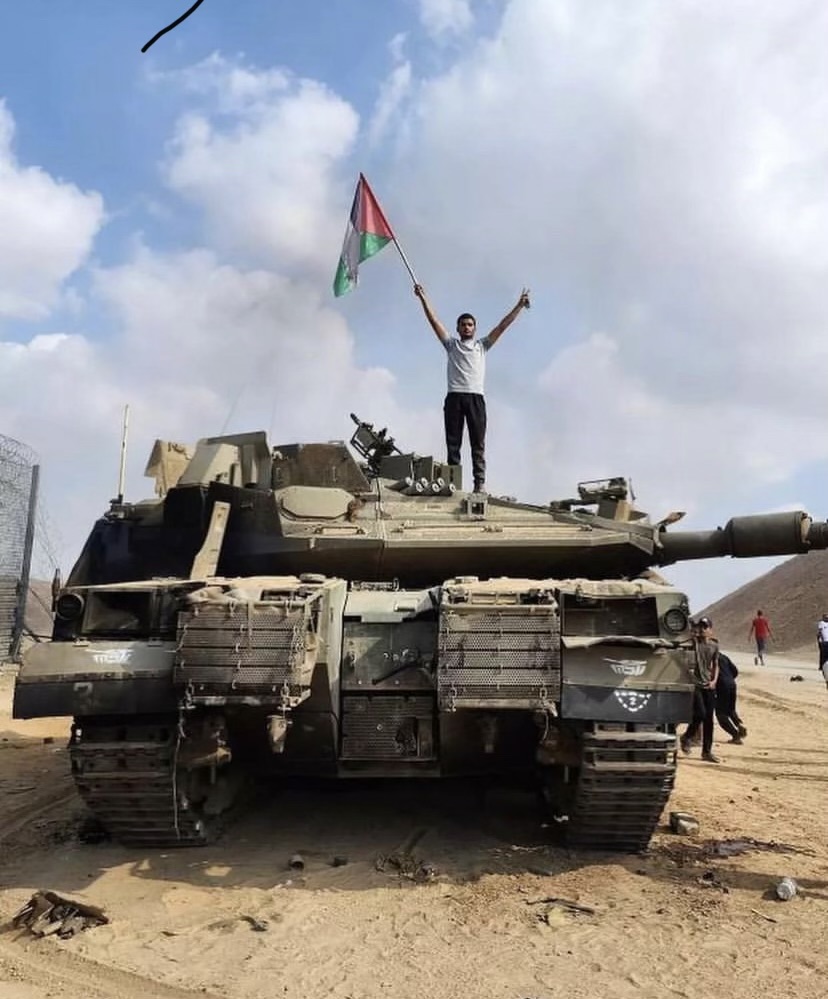
Israel has sent soldiers and tanks in an attempt to control the situation but according to military analysts, the element of surprise was crucial in giving Hamas the ability to overwhelm the unprepared forces. Hamas has claimed the capture of senior Israeli Military officials, including Brigadier General Nimrod Aloni. Israeli security forces have declined to make a statement on the matter.

Israeli Prime Minister Benjamin Netanyahu warned of a “long and difficult war,” as the Israeli military-political cabinet officially introduced “clause 40,” Israel’s official declaration of war. Israel has received support from its allies, with President Joe Biden declaring the United States’ “rock-solid” commitment to Israel. Other countries such as Iran and Syria expressed their support for the Palestinian resistance, while Qatar and Iraq blamed the fighting on Israel’s occupation and international rights violations. Hamas urged the Lebanon-based militia group Hezbollah to join the offensive against Israel, but Hezbollah has so far refrained from launching a ground assault on Israel, instead engaging in exchanges of artillery fire on the Israeli-Lebanese border. Meanwhile, many countries such as Russia and Egypt emphasized a need to de-escalate the violence. The United Nations Security Council held an emergency meeting in New York on Sunday.
The attacks also come one day after the 50-year anniversary of the 1973 Israeli-Arab War, but the timing is significant for several other reasons. Firstly, the United States has recently been pushing Saudi Arabia to normalize ties with Israel, which would be a significant loss for the cause of Palestinian support among Arab states. However, Saudi Arabia maintained their position that the Palestinian issue would need to be resolved before they agreed to the normalization deal. Additionally, Israel has recently experienced some instability during mass protests of judicial reforms that would further centralize the power of Netanyahu’s far-right government. Netanyahu has hence faced a worsening political situation, now furthered by this major lapse in national security.
While the goals and intentions of Hamas’s operation are disputed and likely vary, the effects on the political situation in the area are likely to be profound. Israel’s presence in the Middle East has long since been the source of conflict and tensions in the Arab world, and its long history of occupation and human rights violations against the Palestinian population have remained a barrier to achieving peace and stability in the region.
